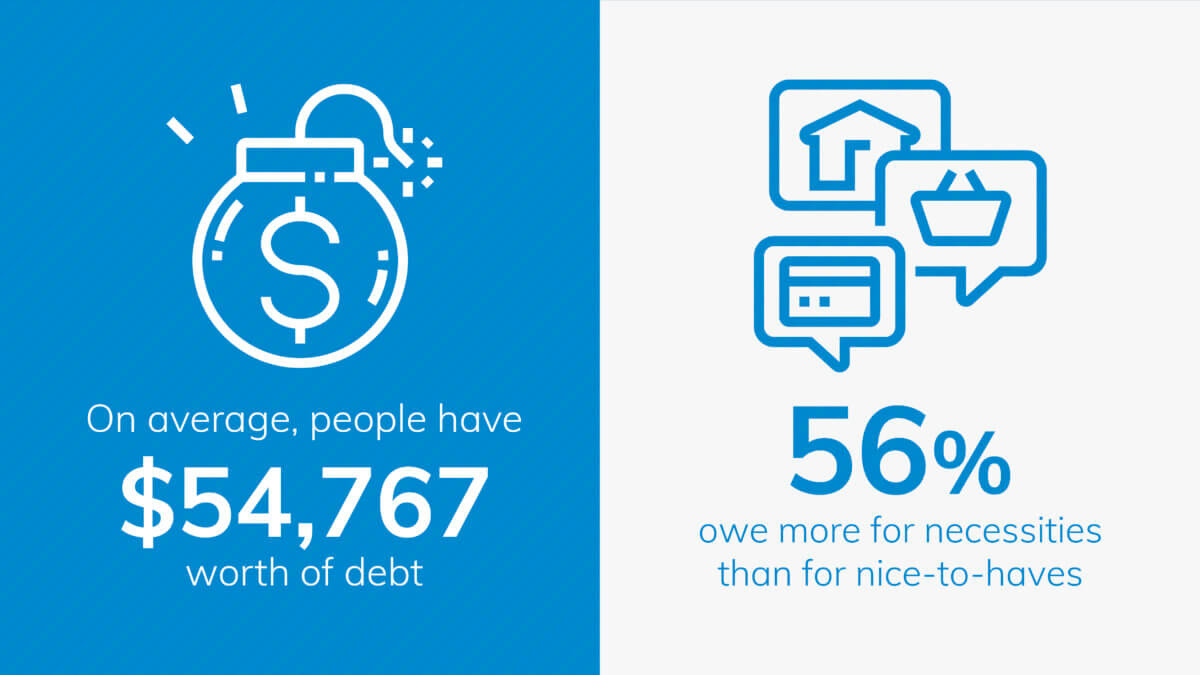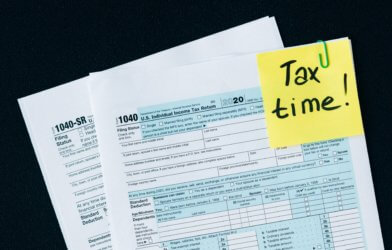NEW YORK — What would you do to be completely debt-free? A new survey finds Americans would give up social media for a year (32%), spend a night on a remote island (31%), and even go a month without internet access (29%). According to the poll of 2,000 U.S. adults, the average person feels they could only stay debt-free for eight-and-a-half weeks (less than 3 months) before accruing new debt.
The research also measured people’s confidence in their ability to remain out of debt, revealing only 38 percent feel “very confident” in this regard. The most uncertain respondents (384) shared some of the reasons, including the rising cost of living (54%), unexpected expenses (46%), rising interest rates (29%), not having enough support from others (20%), and feeling the need to spend to keep up with others (16%).
People’s biggest debt hurdles include credit card debt (57%), mortgages (30%), automobile loans (30%), and medical debt (28%). Conducted by OnePoll on behalf of Beyond Finance for National Financial Freedom Day, the survey also found the average person has $54,767 worth of debt, with 56 percent saying they owe more for necessities than for “nice-to-haves.”
For some, their debt has stood in the way of making significant life changes, such as buying a home (33%), a car (30%), and setting up their child’s savings (24%).

What would people do if they woke up debt-free?
Thirty-two percent would add money to their emergency fund, while 27 percent would purchase their dream home and 26 percent would take a long-awaited vacation. Others would “pursue a different career,” “start my own business,” finance their children’s education, and “help my parents with their debts.”
“Debt can sometimes deter people’s short- and long-term goals for themselves and their families,” says a spokesperson for Beyond Finance in a statement. “Learning to manage it effectively can be life-changing, but 49 percent admit to feeling anxious about their debt, which may make it challenging to focus on finding solutions.”
What can make debt stressful for many? Interest rates (24%), the inability to pay it off (22%), and seeing how much they owe increase (20%). Not all debt is created equal, however, as nearly half the poll (48%) believes some of the debt they had taken on was worth it. That includes a mortgage (38%), car loan (33%), and home improvement or repairs (28%).
People are also seeking support to manage their debt, with about a third (31%) crediting their family as being the most helpful resource. However, only 29 percent are “very confident” in their ability to pay off their current debts on time — including fewer women than men (19% vs. 41%). Four in 10 (41%) also say it will take them years to be debt-free.
“Choose a debt resolution program that’s personalized to your needs and helps you keep track of your progress. Seeing your debt gradually diminish is a great way to stay motivated on the path to becoming debt-free,” the spokesperson adds.
Survey methodology:
This random double-opt-in survey of 2,000 general population Americans was commissioned by Beyond Finance between June 9 and June 12, 2023. It was conducted by market research company OnePoll, whose team members are members of the Market Research Society and have corporate membership to the American Association for Public Opinion Research (AAPOR) and the European Society for Opinion and Marketing Research (ESOMAR).





So you’re saying the average American is in debt for the price of a nice car?
Why all of this worry over debt? If it cannot be paid, don’t pay it. And forget about the moral duty b/s. The loan was a deal that went bad. It just did not work out. When I get that moral duty line from a bill collector, my response is, “Well here in Philadelphia (Pa.) it is my moral duty to pay the rent, provided food, and keep the lights on. Everything else gets in line. Y’all can KMA and SMD.” And I keep ’em on the phone as long as they want. Eventually, they hang up frustrated often complaining, “You are just wasting my time.” And they hang up on me. Eventually, they give up even trying.
I don’t really see that ending well for you.
Amen, truer words have not ben spoken. How many times I’ve wanted to buy something but didn’t. Being without debt makes up for the difference of having something that you really didn’t need.
I wonder were that number came from. There is a large number of debt that is secured. Car loans, mortgages etc. I wonder why the true number of unsecured debt is. Credit cards, payday loans etc. That is where the trouble lies.
I admit I was there once. Now I am retired, debt free and own my home. Great feeling.
Feeling the need to spend to keep up with others (16%).
Cross that one is first!
You don’t need what everyone else has to be happy. The people in your life are more important than the things.
Secondly, getting out is debt, just to go back in debt for a vacation…..really?
Once you pay off that first credit card, it feels so good you want to keep going.